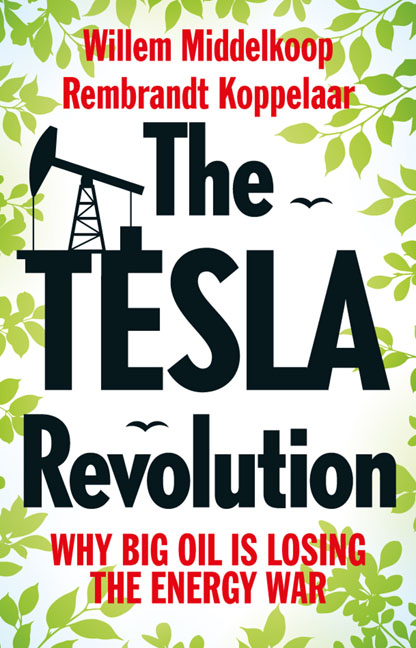Book contents
- Frontmatter
- Contents
- Prologue
- Special Introduction
- Chapter 1 The Tesla Revolution
- Chapter 2 A History of Fossil Fuel Dominance
- Chapter 3 The Petrodollar and the Geopolitics of Oil
- Chapter 4 Peak Oil Revisited: The End of Cheap Oil
- Chapter 5 Climate Change and the World of Energy
- Chapter 6 What Will the Energy Mix of the Future Be?
- Epilogue
- Appendix
- References Prologue
- Register
Chapter 4 - Peak Oil Revisited: The End of Cheap Oil
Published online by Cambridge University Press: 12 December 2020
- Frontmatter
- Contents
- Prologue
- Special Introduction
- Chapter 1 The Tesla Revolution
- Chapter 2 A History of Fossil Fuel Dominance
- Chapter 3 The Petrodollar and the Geopolitics of Oil
- Chapter 4 Peak Oil Revisited: The End of Cheap Oil
- Chapter 5 Climate Change and the World of Energy
- Chapter 6 What Will the Energy Mix of the Future Be?
- Epilogue
- Appendix
- References Prologue
- Register
Summary
Our analysis suggests there are ample physical oil and liquid fuel resources for the foreseeable future. However, the rate at which new supplies can be developed and the break-even prices for those new supplies are changing.
– International Energy Agency, 2013[42]All the easy oil and gas in the world has pretty much been found. Now comes the harder work in finding and producing oil from more challenging environments and work areas.
– William J. Cummings, ExxonMobil company spokesman, 2005[62]It is pretty clear that there is not much chance of finding any significant quantity of new cheap oil. Any new or unconventional oil is going to be expensive.
– Lord Ron Oxburgh, a former chairman of Shell, 2008[63]Introduction
Peak Oil is the point in time when the maximum production of oil in the world is reached. After that point is reached, oil supply can no longer grow, it remains stable for a few years at best, and typically starts to fall unrelentingly. It is often confused with oil depletion and running out of oil altogether. Shell geophysicist M. King Hubbert in the 1950s was the first to figure out why this phenomena of an oil field's production rising, peaking, and declining occurs the way it does. Thanks to his in-depth understanding of the physics of oil production and observations of past discoveries and production levels, he was able to predict future production trends.67 Hubbert's first prediction, from 1956, that US easyto- extract conventional oil production would peak around 1970, turned out to be accurate.[1] He was vindicated only long after the fact, as attacks by US government bodies and geologists on his prediction continued several years after the peak had occurred. Even the United States Geological Survey in 1974 still published reports stating that production would grow to 20 million barrels per day by 1985 after a few years of declining production (in reality in 1985 production has declined to 9 million barrels per day). [2] US oil production after the peak continued to decline with smaller peaks and declines until 2008, after which it started to grow again.
- Type
- Chapter
- Information
- The Tesla RevolutionWhy Big Oil is Losing the Energy War, pp. 145 - 180Publisher: Amsterdam University PressPrint publication year: 2017

